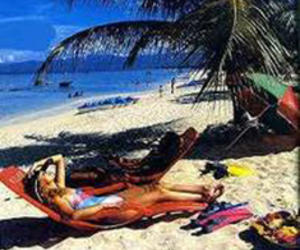U.S. Cuba travel to shake Caribbean -- a bit
- Submitted by: manso
- Travel and Tourism
- 01 / 20 / 2011

PUNTA CANA, Dominican Republic -- I happened to be visiting this stunning beach resort on the day when the Obama administration announced new measures to allow for more U.S. travel to Cuba, and I couldn't help wonder whether a gradual increase of U.S. visitors to Cuba won't hurt all other Caribbean tourism spots.
Granted, last week's measures do not amount to a lifting of the U.S. travel embargo on Cuba and will not result in an immediate avalanche of U.S. tourists to Cuba. The new measures will make it easier for schools, churches and cultural groups to visit the island, allowing them to organize charter flights as part of a plan to increase ``people-to-people'' contacts.
But the new measures, coupled with previous Obama administration steps to relax restrictions on travel by Cuban-Americans to Cuba, will undoubtedly result in a sizable increase in U.S. tourism to Cuba.
It's already happening. A frequent flyer to Havana told me recently that there were 20 flights a day from Miami to Havana in December, when Cuban-Americans from Florida flocked to visit their relatives for the year-end holidays. Now, travel agencies will be able to organize charter flights with ``cultural'' purposes, which -- if the administration interprets its own rules with flexibility -- could include almost anything.
``The new measures won't produce an explosion of U.S. tourism to Cuba, but that will come eventually,'' says Andy Dauhajre, a well-known economist who heads the Dominican Republic's Economic and Development Foundation. ``And when it comes, it will have a significant impact over places like Cancún, the Bahamas, Jamaica and the Dominican Republic.''
According to Dauhajre's estimates based on a 2008 International Monetary Fund report, a total opening of U.S. tourism to Cuba could result in an influx of between one million and three million U.S. tourists, which -- in the latter scenario -- would result in an annual loss of 700,000 U.S. visitors to Cancún, 600,000 to the Bahamas, 400,000 to Jamaica and 360,000 to the Dominican Republic.
``The key is whether Cuba will be able to build more hotel rooms to accommodate the new U.S. visitors,'' says Dauhajre. ``If it can't, there will be a spill-over of Canadian and European tourists to other Caribbean destinations.''
The 2008 IMF study by economist Rafael Romeu, entitled, Vacation Over: Implications for the Caribbean of Opening U.S.-Cuba Tourism, concluded that an opening of Cuba to U.S. tourism ``would represent a seismic shift in the Caribbean's tourism industry.''
Cuba receives about 2.5 million tourists a year, mostly from Canada, Europe, and Latin America. The Cuban government, perhaps anticipating the Obama administration's much-expected new measures, projected recently that it expects the number of tourists to the island to grow by a strong 10 percent this year.
But some experts say even an all-out opening of U.S. tourism to Cuba would not cripple other Caribbean countries' tourism industries.
Carlos Vogeler, head of the World Tourism Organization's Americas' department, told me that a massive influx of U.S. tourists to Cuba would bring about a new excitement about travel to the Caribbean that would result in more travel to all tourism spots in the region.
``The pie will grow for all Caribbean tourism destinations,'' he said.
My opinion: When it comes, the impact on the Caribbean of an avalanche of U.S. tourists to Cuba will be less dramatic than expected.
After 50 years of the U.S. travel ban to Cuba, there is undoubtedly a lot of pent-up curiosity about the island in the United States. It will cause a big jump in U.S. tourism to Cuba but it won't be the end of the world for Punta Cana, nor for most other Caribbean travel destinations. By: ANDRES OPPENHEIMER. [email protected].
Source: www.miamiherald.com/2011/01/20/2024521/us-cuba-travel-to-shake-caribbean...
Comments